The aftermath of any festival leads to a lot of waste. Disposal management becomes an issue, not to mention the toll it takes on the environment. E-City Habba, a completely green event conducted at Electronic City with over 2000 audience, broke barriers by being one of the most unique festivals in Bengaluru.
This extravaganza was organised by Electronic City Industrial Township Authority (ELCITA) the administrative body of Electronic City. They vouched to go green and upheld this promise in full spirit. This was one of the cleanest festivals; achieved by an initiative taken by ELCITA and graced by Infosys.
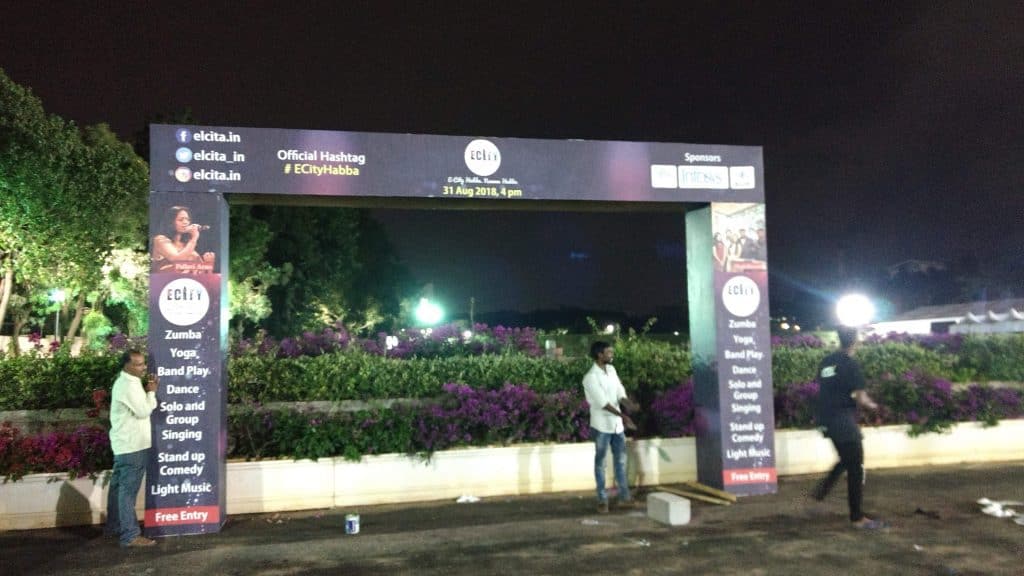
Cloth banners
The event was held at the Infosys grounds in Electronic City. Being true in going green, all promotional activities commenced in an eco-friendly manner. Advertisements were limited to online media and small print ads that fit into spaces already existing on lamp posts. This minimised the paper trail. Even the big banners used at the venue were made of cloth.
Several employees from all offices in Electronic City had attended and participated enthusiastically. Upon entering the venue, guests were greeted by Eco-Vaahans; vehicles that run on electricity and use no petrochemicals or produce any exhaust fumes, which drove them to the stage and stalls.
E-City Habba promoted the cause of sustainability and awareness towards green living by hosting eco-friendly and organic stalls by organisations like Jivabhumi Agri Tech, Quantum Leap Guru and more.
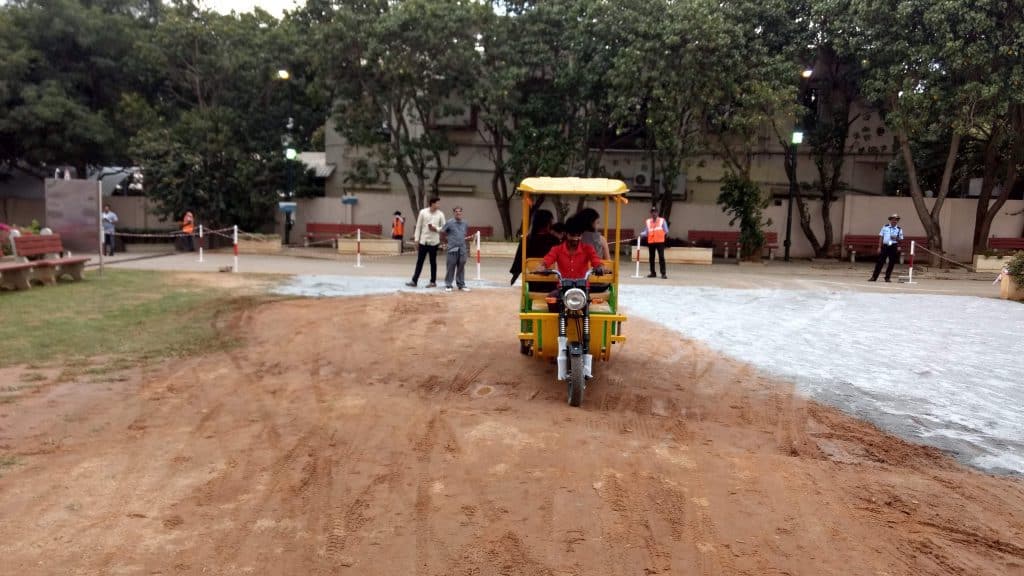
Eco-Vaahan to carry people around
There was a stall dedicated to household products, which are usually made from plastic, into bamboo. Bamboo is much more sustainable than wood or plastic and is regarded as a resource. The products ranged from toothbrushes and combs to soap dishes and straws. There were notebooks, diaries and even jewelry made of recycled paper at one stall.
They even had pens made with a paper body rather than plastic. For the little ones, there was a stall that specialised in wooden toys of all shapes and sizes. They had tiny replicas of musical instruments and hand-pulled trolleys. These would last for a long time and are a very eco-friendly supplement compared to plastic.
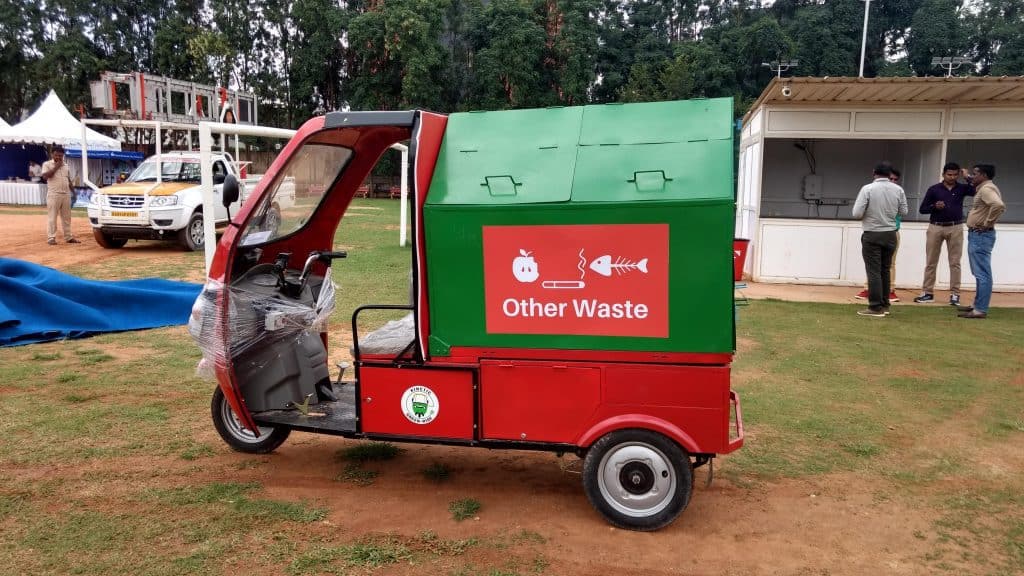
Wet waste minivan
One of the highlights of this event was the pottery stall. People could try their hand at pottery here with the help of the potter at the stall. He had a wheel recycled from an old tire, moving it manually himself and helping people create their own little mementos. Attendees were excited to get their hands dirty and take a little clay piece home with them.
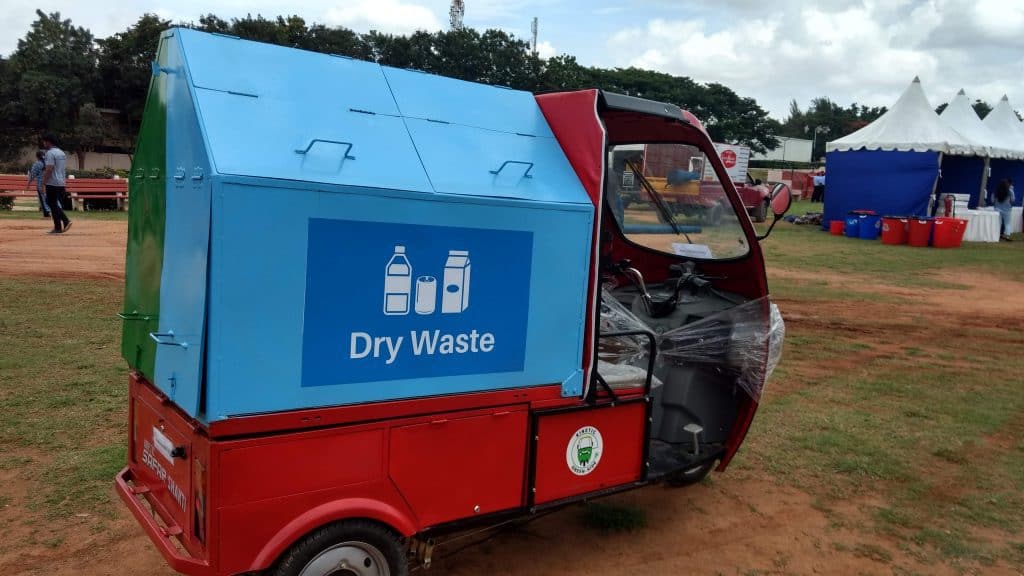
Dry waste minivan
Waste management was impeccable. ELCITA has always been extremely pro-environment and made maximum efforts to implement the same at the festival. There were sweepers constantly cleaning and clearing any trash simultaneously. A full scale plastic ban was recently implemented in Karnataka, so all edibles were served on paper plates and cups with wooden cutlery, making it more eco-friendly and sustainable.
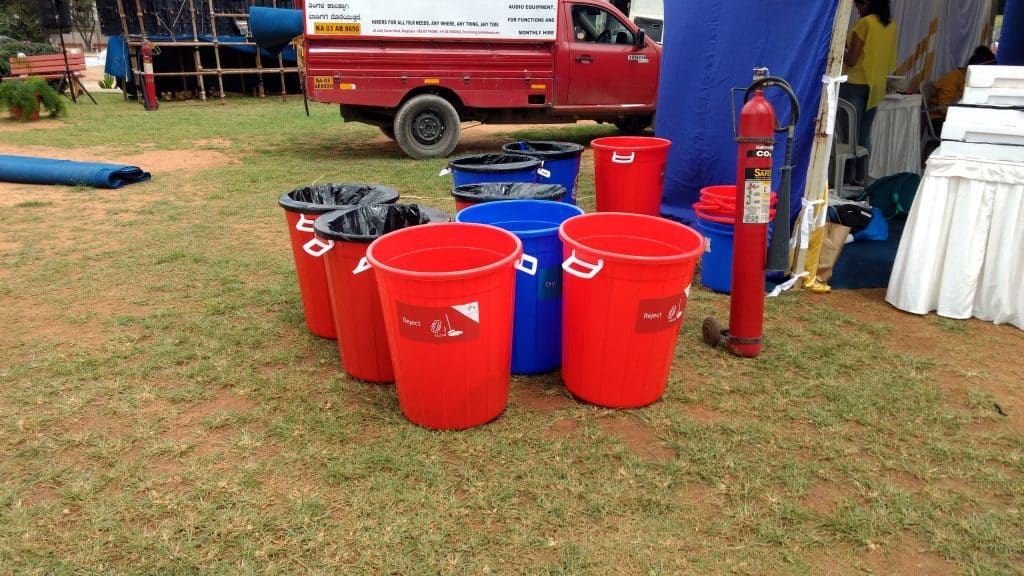
Bins for disposing segregated waste
Portable toilets and waste bins were installed all around. The bins were segregated as per norm, dry and wet. They were disposed into similarly segregated garbage minivans, as the event went on. After the festival concluded, the association made sure that the ground was restored to its original state. The ELCITA cleaning staff made sure that the Infosys ground was spic and span.
All in all, E-City Habba was a huge success, both culturally and in fostering the idea of environmental sustainability and waste management.